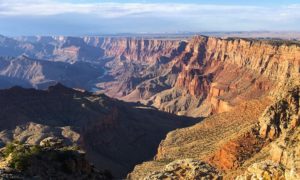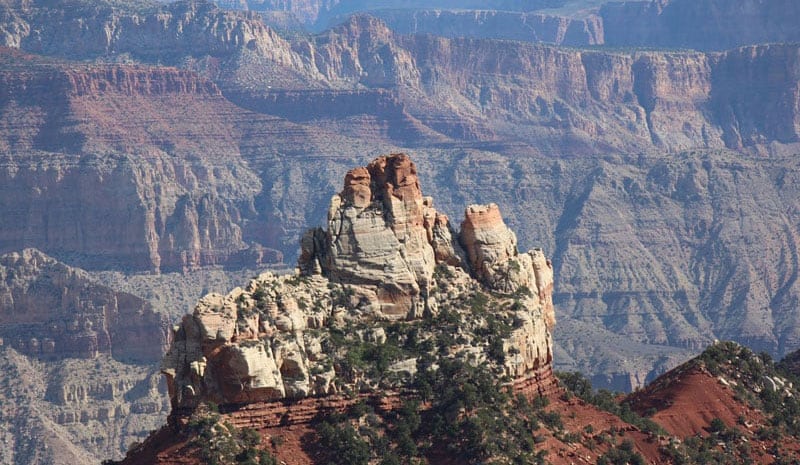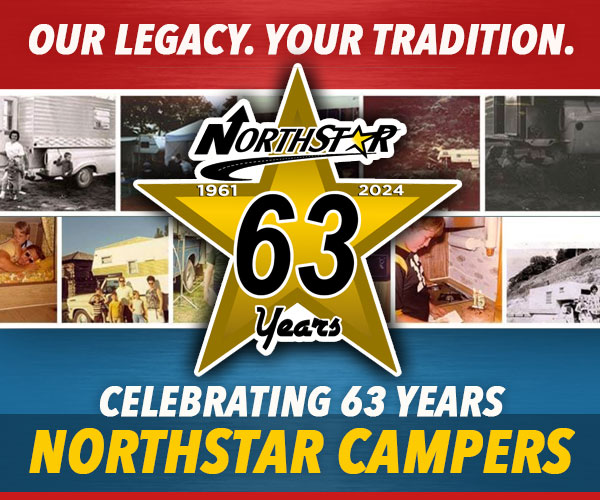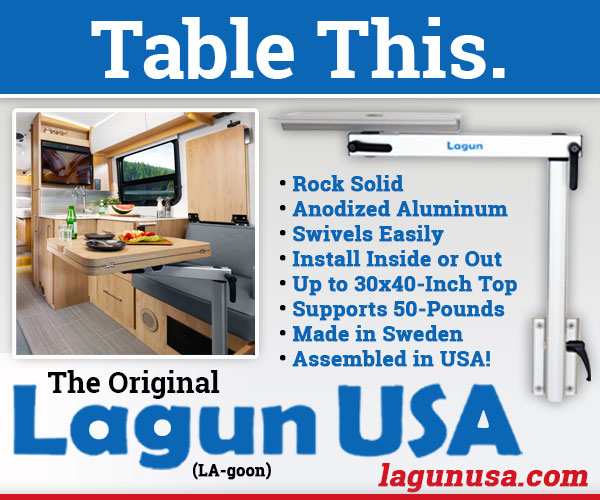Ten experienced truck campers reveal a list of must-see roads, trails, and attractions in and around Glacier National Park in Montana. First up, the harrowing Going to the Sun Road. Look out below.

“I’m fine. We’re fine. We’re not going to drive over the cliff.”
Angela wasn’t hearing any of it. She was freaking out in the passenger’s seat, transfixed by the certain death passing mere feet from our truck tires. The year was 2005, and we were driving up the Going to the Sun Road, a star attraction at Glacier National Park.
“Be careful! Watch out! Don’t sneeze!” she exclaimed.
I do have allergies, but was oddly relaxed with the winding paved road. After stopping to photograph roadside waterfalls and beautiful mountain peaks, I found myself thinking as much about the human effort behind building the road as the natural splendor before us. The St. Mary Visitor Center tells the incredible story of this breathtaking 50-mile drive.
Built between 1921 and 1932, the road is snowed-in and impassable for eight months of the year. Plowing the two lane road every spring takes up to 10 weeks and requires enormous machines to carve a path through snow that can be 80 feet (24 meters) deep at Logan Pass. Even after all this work, the road is only open June/July through mid-October. And you thought your job was tough.
Upon our return home, the Going to the Sun Road was one of our favorite experiences to share with friends and family. The drive, the scenery, and the history of the park were beyond what we could have imagined. In 2010, we returned again to Glacier, and look forward to returning many times in the future.
Bucket List Destination: Glacier National Park
Last September we kicked off a new bucket list destination series with a feature on Grand Teton National Park. In February, we followed up with a spectacular feature on Alabama Hills in California.
For this article, ten TCM readers with first hand truck camping knowledge of Glacier National Park have shared their experience, recommendations, and advice on visiting this incredible destination. Get your bucket list out. Glacier National Park is one not to miss.
Kris Cassidy
2003 Toyota Tacoma
2013 Northstar 600SS
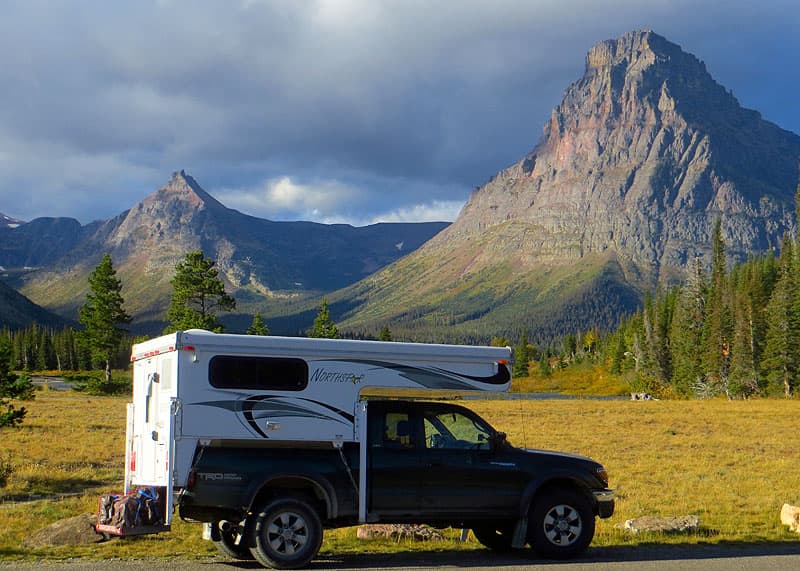
Glacier is my favorite national park, and we have visited it every year for the last three years. It offers the most spectacular scenery for camping, hiking, and kayaking.
1. Not To Miss Hikes
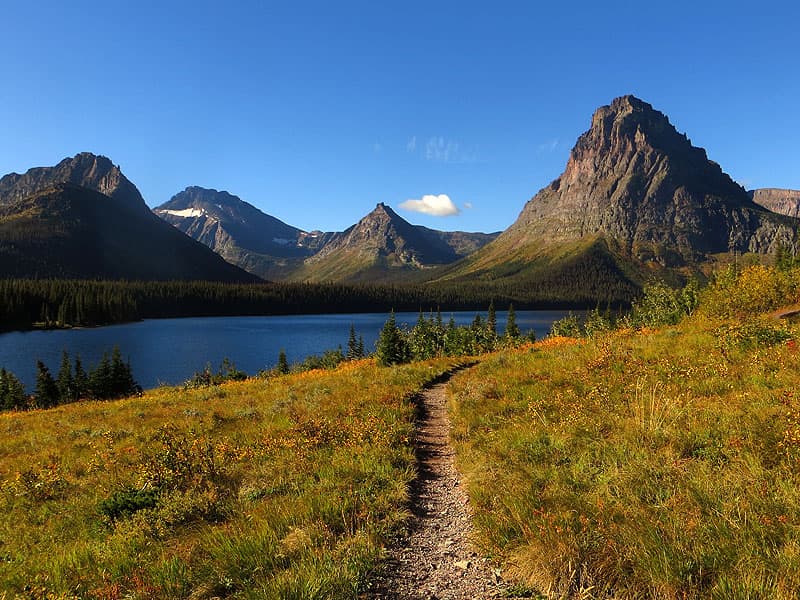
Above: Two Medicine Lake hike
One of my favorite Glacier National Park hikes is from Two Medicine Lake to Upper Two Medicine Lake, especially in late September when the fall colors are peaking.
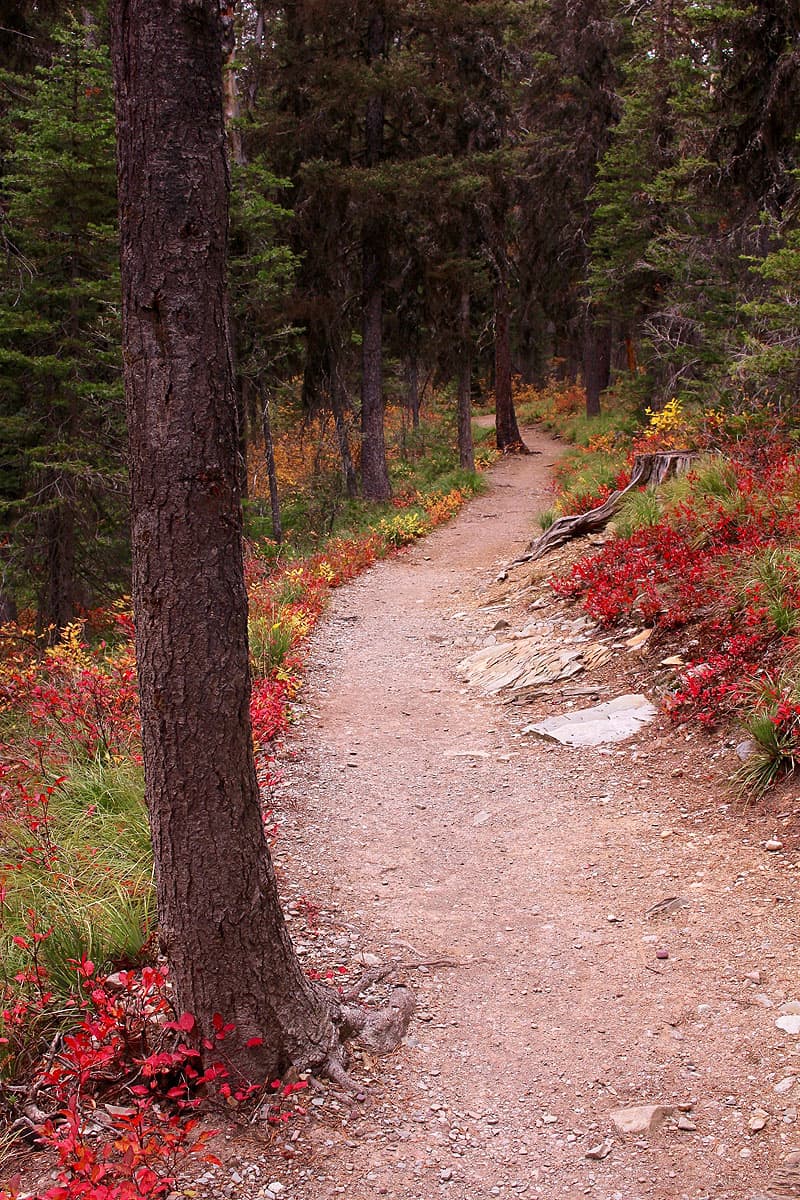
Above: Two Medicine Lake hike
The trail from Two Medicine Lake to Upper Two Medicine Lake is about ten miles round trip. You can shorten that to 2.2 miles round trip if you take the boat from near the campground at Two Medicine to the other end of the lake. The boat is only available in the summer.
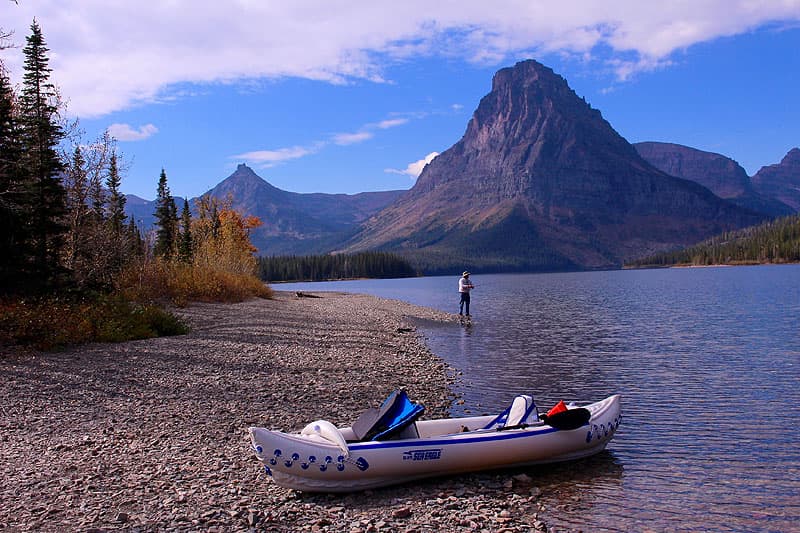
Above: Sea Eagle 330 2-person kayak at Two Medicine Lake – the kayak has been working very well for us, and it stows comfortably behind the driver’s seat in the truck.
The hike follows the north shore of Two Medicine with great views. Bear and moose and mountain goats are frequently sighted. As with all hiking in Glacier, one should always carry bear spray.
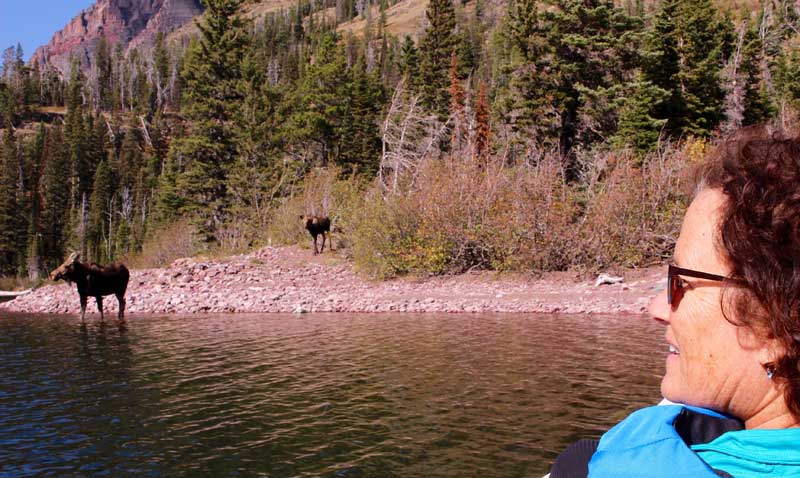
Above: Moose at Two Medicine Lake
Soon after the trail leaves the lake there is a short spur off the main trail which goes to Twin Falls, a picturesque spot in the forest. After that the trail soon opens out to panoramic vistas until it terminates at Upper Two Medicine Lake, where it tends to be wild and windy.
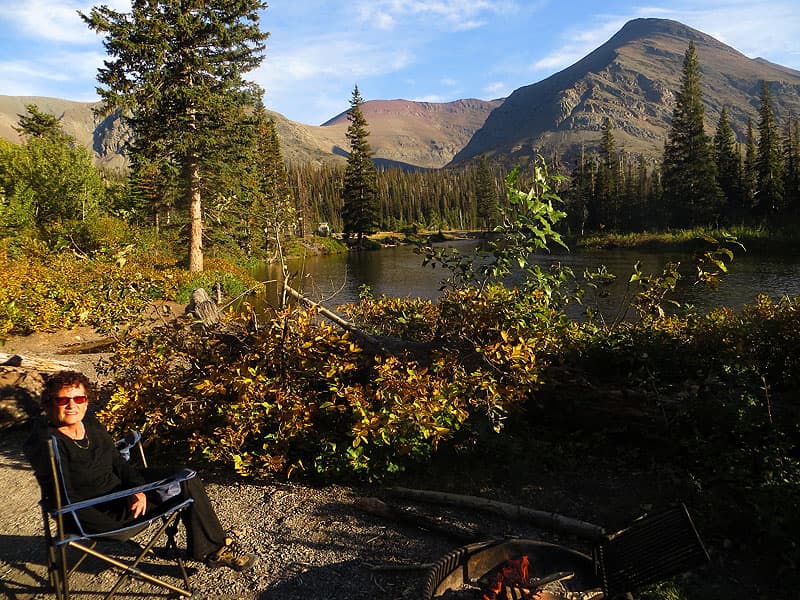
On the return trip there is the option to take the south shore trail back to the campground. This adds another 1.5 miles, but there is little elevation gain the whole way.
2. Magnificent loop trail to Quartz Lake from Bowman Lake
The campground at Bowman Lake is only a short walk from the lake itself. From Bowman there is a magnificent loop trail to Quartz Lake; the most pristine of them all.
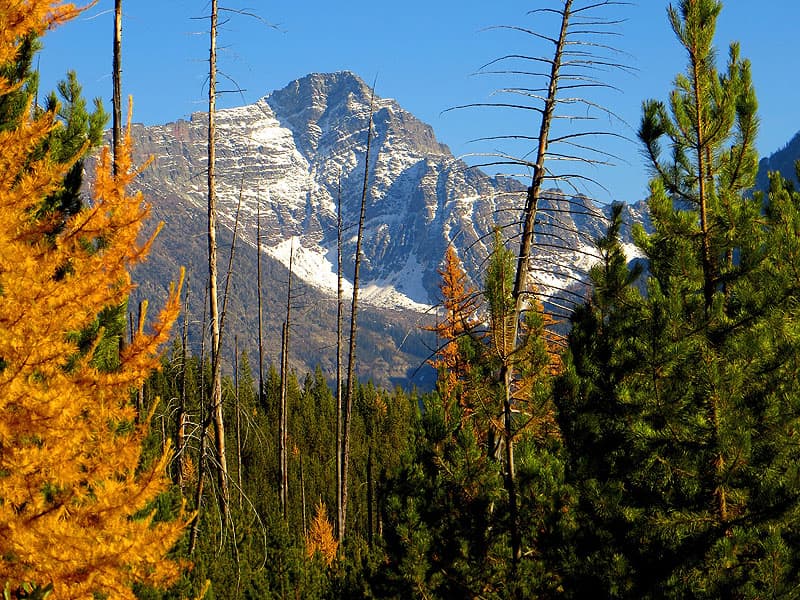
The Quartz Lake Loop Trail is about twelve miles. If you go clockwise, you hike the first three miles up from Bowman Lake.
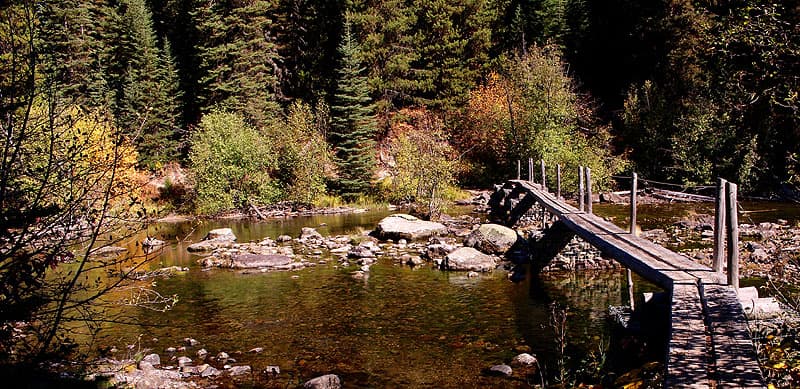
The trail leads you through dense forest with occasional views back on Bowman with an elevation gain of 1,800 feet.
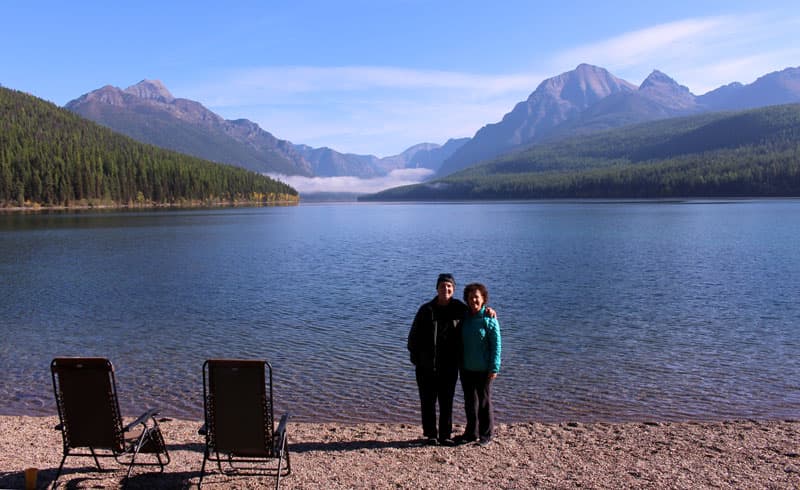
Above: Kris and Savanna at Bowman Lake
You then come out to an incredible vista with Quartz Lake and Lower Quartz lake below, and of the surrounding peaks.
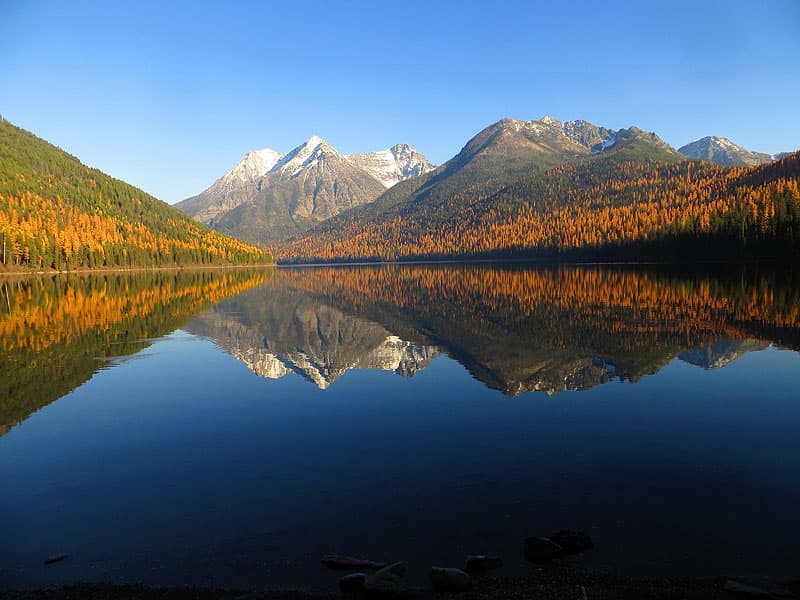
Above: Quartz Lake
From there, you can hike down to Quartz Lake, then to Lower Quartz Lake in open meadows alternating with forest, and then hike back to Bowman with an elevation gain of 1,000 feet. We had not intended to do the whole loop, but were compelled to continue after experiencing to the first vista. As a result, we ended up hiking the last forty-five minutes in the dark, which is not advisable in bear country in the fall. But if you start early enough, there is no problem to complete the loop in daylight.
Another Glacier National Park hike not to be missed is from the Logan Pass Visitor Center – at the top of Going to the Sun Road – to Hidden Lake.
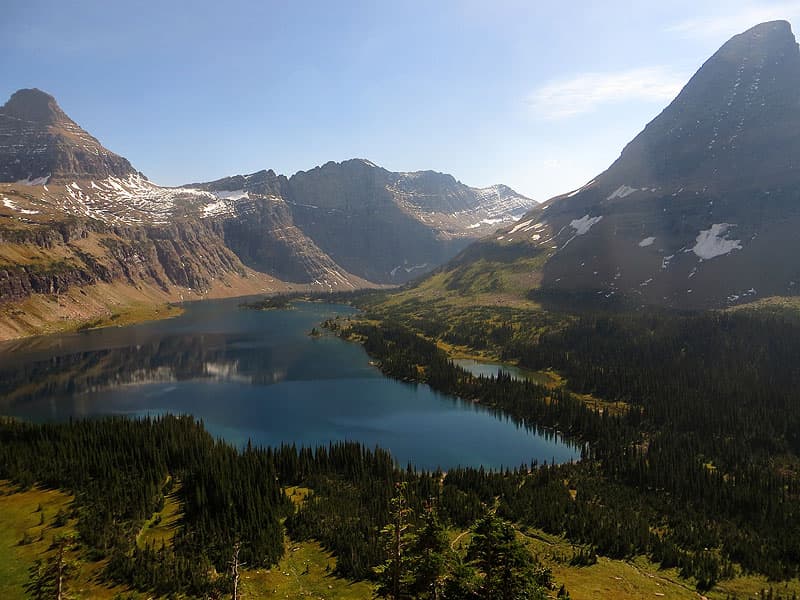
Above: Hidden Lake
My favorite Glacier National Park camping spots are Two Medicine Lake and Kintla Lake, both of which offer sites with mountain lake views. Kintla campground also has a stream running through it. Kintla and Bowman are at their most colorful in the third week of October when the larches have turned yellow/orange. Get to the park soon, before the glaciers have all melted.
Duncan Crawford
2008 Ford F450
2006 Arctic Fox 1150
3. Kintla Lakes Is Great For Canoes and Kayaks
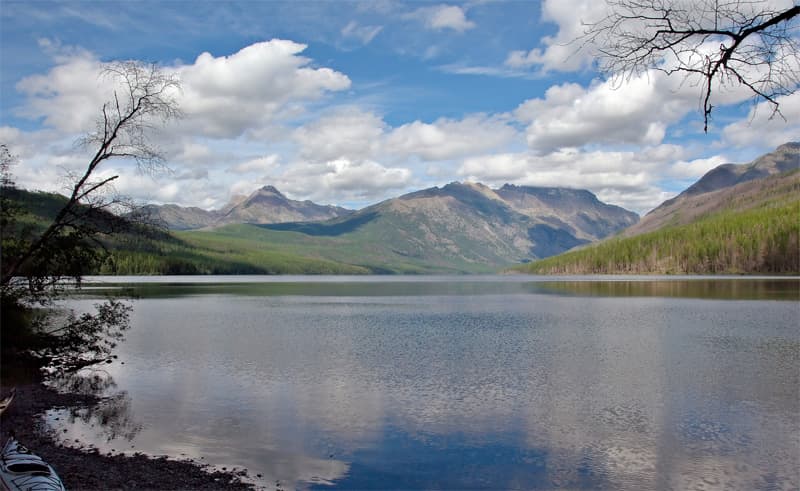
Try and get into the Kintla Lakes area, a small campground (no day use) in the northwest corner of the park. If you have a canoe or kayak, this is the place to be. You can also hike around both lakes, all the way up into Canada, some thirty or so miles. We took our canoe and paddled/portaged it to the upper lake and back. It’s a long day trip, but definitely a unique experience.
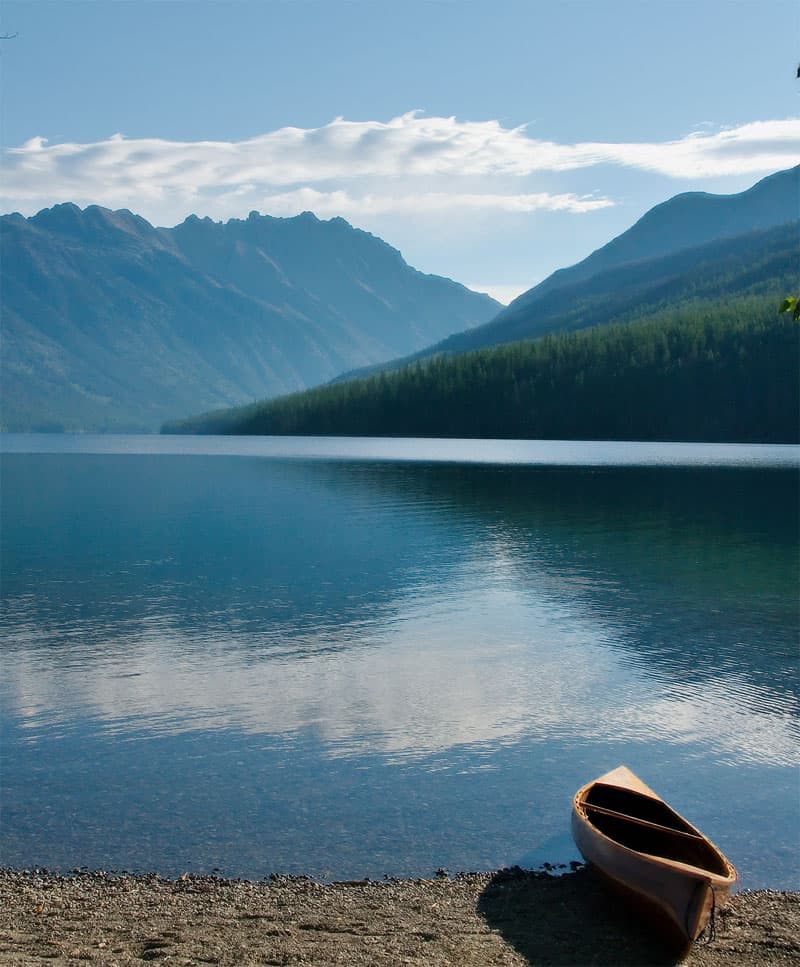
Check out the Avalanche Lake camping area and hike into the lake. Then catch the shuttle up to the top of the Going To The Sun road and hike into Hidden Lake all the way in, down to the water.
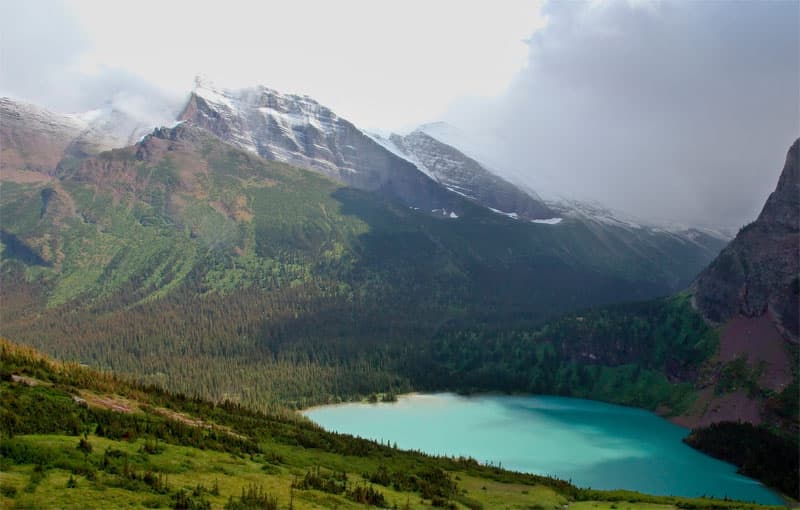
Above: Grinnell Lake, Glacier National Park
Grinnell Glacier is another must, before it’s all gone.
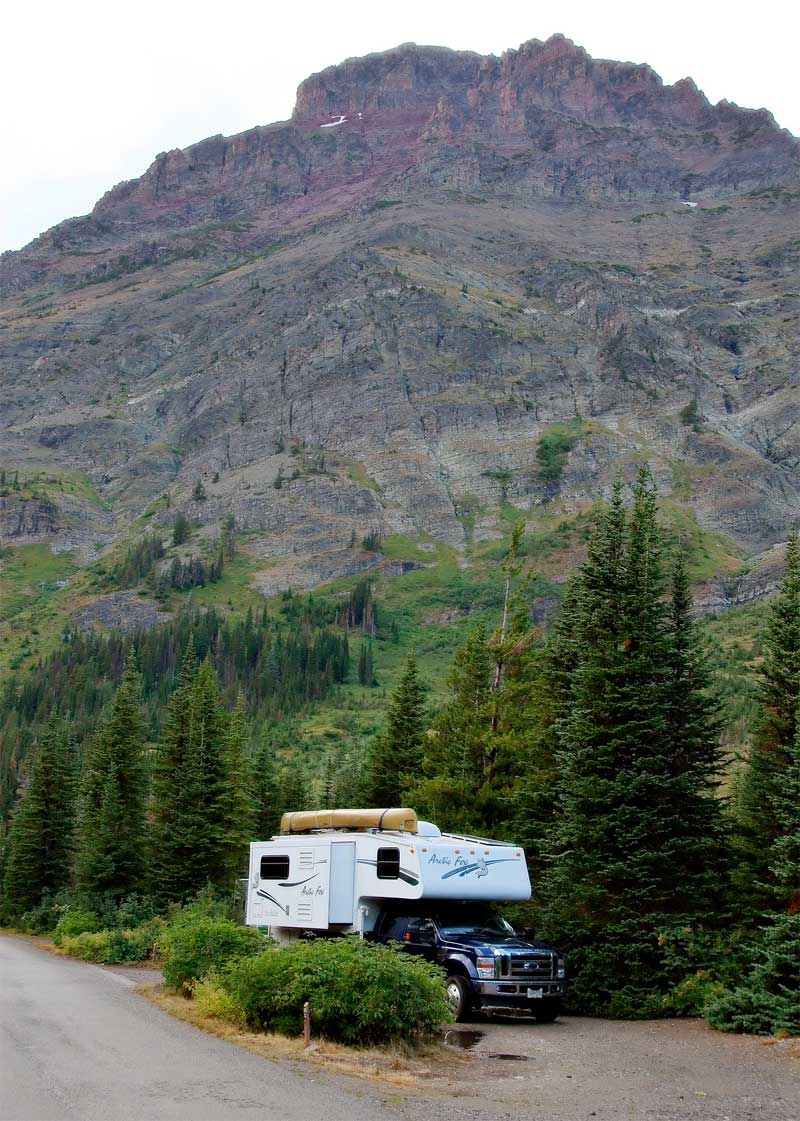
Above: Camping at Two Medicine Campground
We stayed at Kintla Lake, Avalanche Lake, and Medicine Lake park campgrounds. Click here for my photo story.
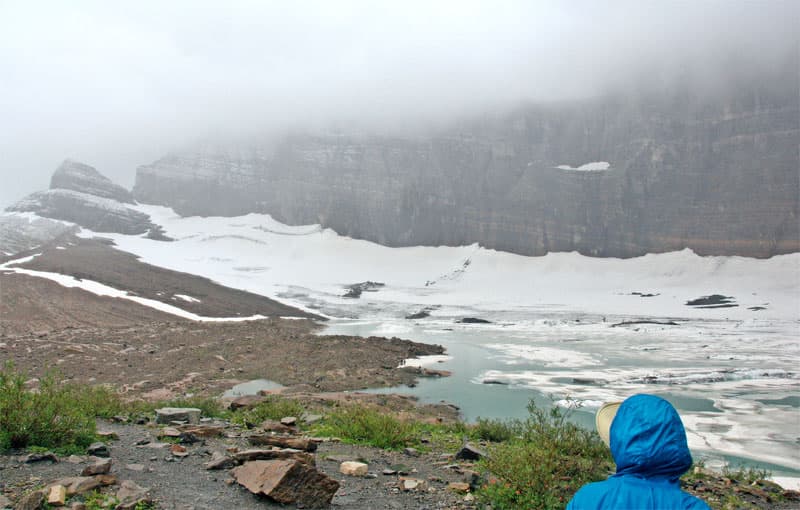
We suggest that you have hiking boots, a camera with a long zoom, and binoculars.
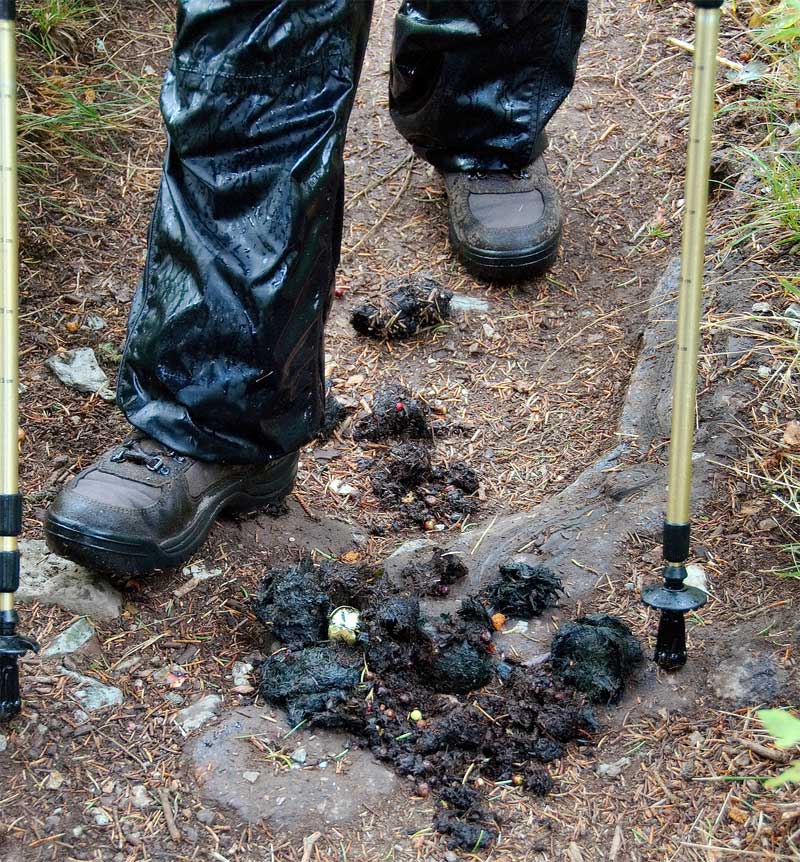
Mountain goats can be either real close or a long ways away. There are lots of birds as well. The wind is okay for canoes in northwest corner of the park. If not, you can plan on a kayak.
Charles and Jeannie Coushaine
2001 Ford F350
2012 Chalet DS116RB
4. Free Shuttle Bus To Explore Going-to-the-Sun Road
We drove from Banff, Alberta, Canada to St. Mary, Montana to visit Glacier National Park.
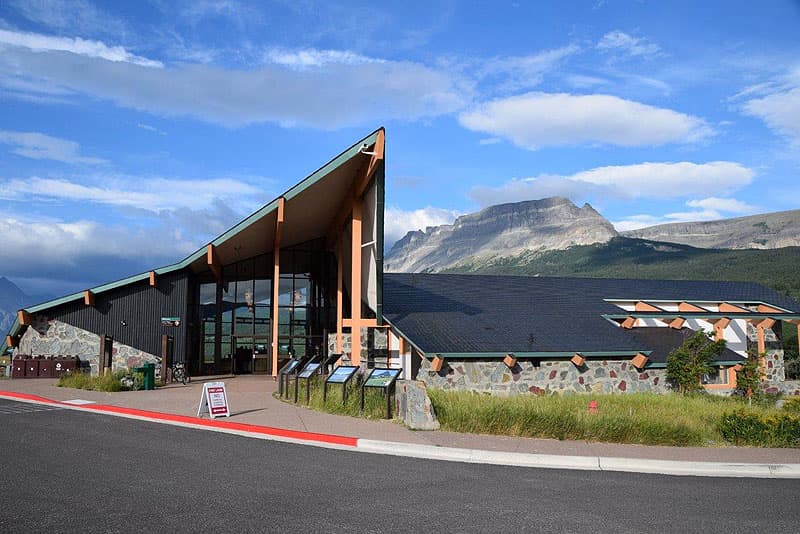
We took a 1.5 mile scooter ride from the East Glacier KOA in St. Mary to the Glacier National Park visitor’s center.
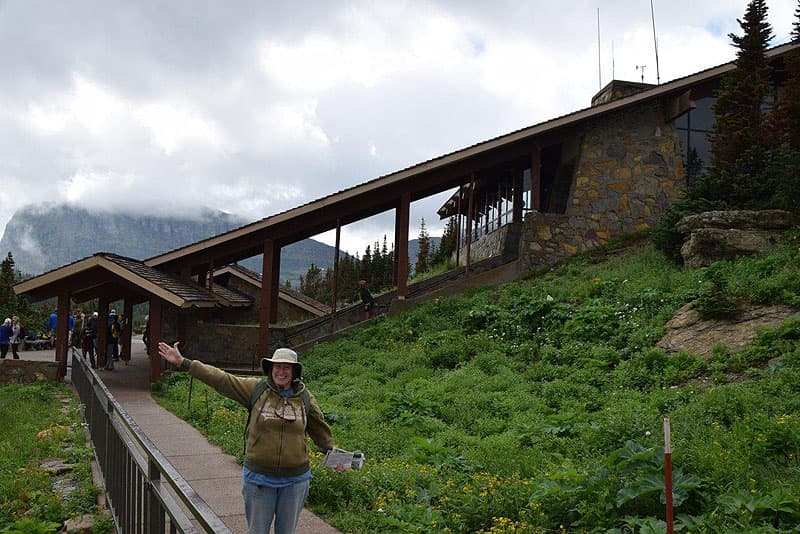
From there we took the free shuttle bus all over the park on the famous Going To The Sun Road, stopping at Logan Pass (highest elevation in park).
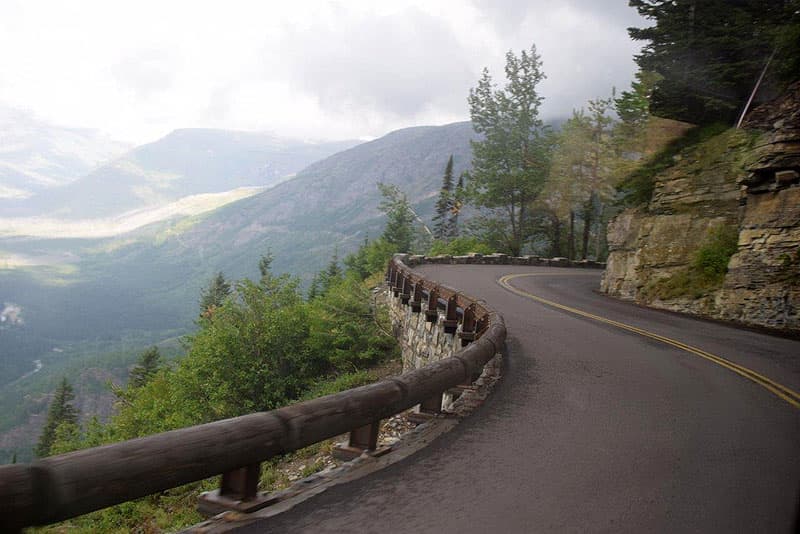
It was a good thing we took the bus because the road was right on the edge of a cliff and made Jeannie quite uneasy looking over the side. Unfortunately, it was so overcast that it wasn’t worth flying the quadcopter.
Editors Note: After Charlie’s visit to Glacier National Park, drone flights were banned inside the US National Park system.
5. Avalanche Lake Hike Scenery
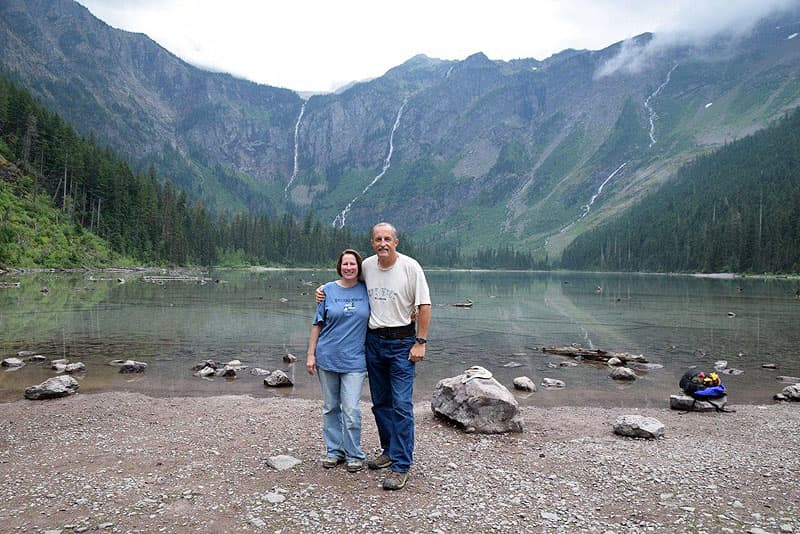
From there we took the bus to go for a long 5-plus mile hike to see Avalanche Lake with an elevation gain of 730 feet. The hike to Avalanche Lake begins from the Trail of the Cedars trailhead, located east of the Lake McDonald Lodge. It is a stop on the free shuttle bus.
Once you start on the Avalanche Lake Trail, you will immediately encounter a short, but steep climb with plenty of slick rock. As you proceed up the rise, you’ll notice a dense forest on your right. This is where I was whacking trees with a stick to let any bears know I was coming. In less than a tenth-of-a-mile you’ll arrive at the banks of Avalanche Creek. Here you’ll have an up-close view of the amazing power of glacially melted water as it rushes down the narrow gorge.
At 2.3 miles you will finally reach the foot of Avalanche Lake. The lake sits at the base of 8,694-foot Bearhat Mountain, which rises almost 4,800 feet above the lake towards the northeast. If you look closely at the cliffs and mountains that surround the lake, you’ll notice several long waterfalls cascading hundreds of feet as they make their way towards the lake.
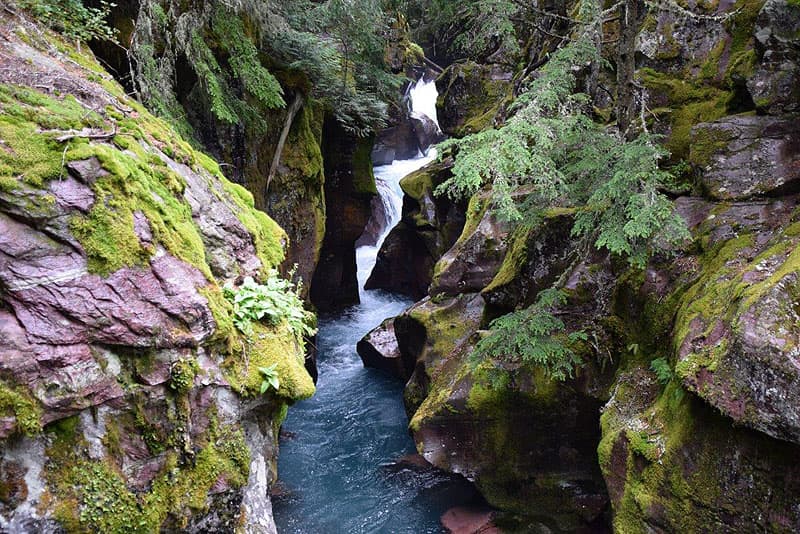
This was a hike that was almost entirely uphill the way there, but we made it and the scenery was quite nice.
Much to our dismay, there was once over 150 glaciers in Glacier National Park, but today there are only twenty-five. They are expected to be gone in a couple decades. Because of the overcast conditions, we only saw one, Sunset Glacier.
Debbie and Ron Greiner
2007 Chevy Silverado 1500
2008 Sun Lite 690 SE
6. Be Careful Of Low Branches When You Camp
One of the first trips we took with our truck camper was in early summer to Glacier National Park. We were there just days before the Going-to-the-Sun Road was opened for vehicle traffic.
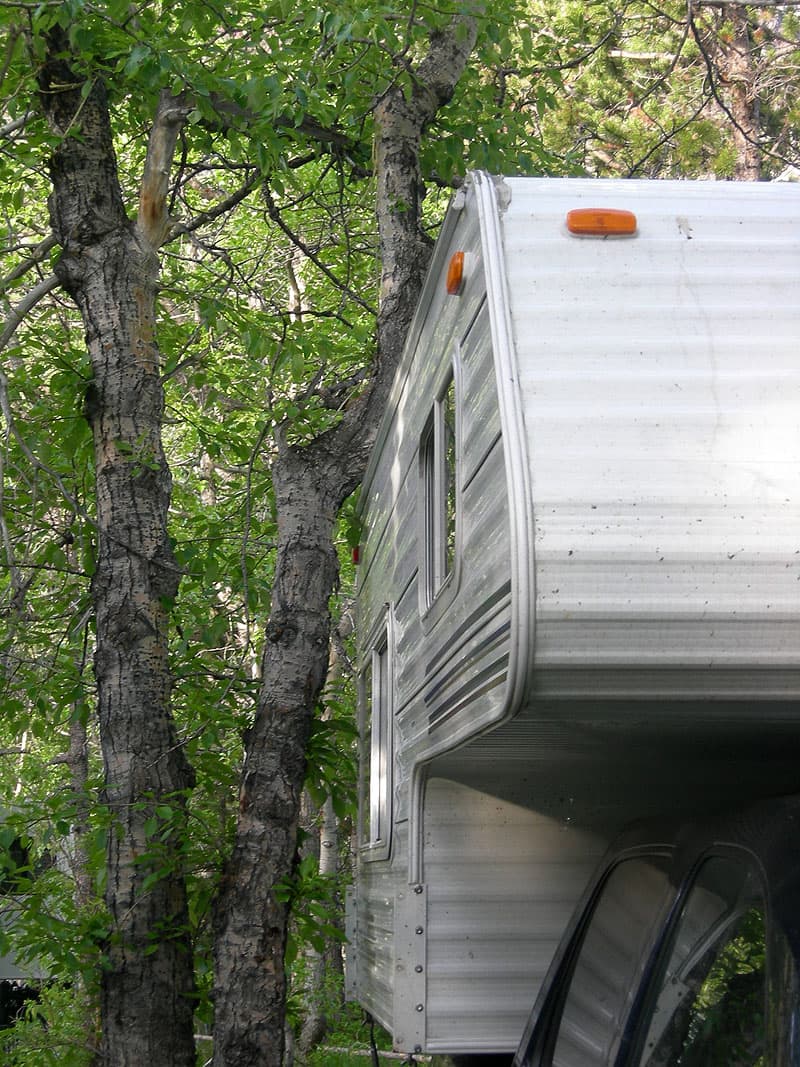
We found a great pull-through camping spot at Many Glacier campground. I watched the tree trunk on the left and helped Ron park. When we were all settled, we looked up and saw how close the roof was to the branch. You can see that the bark had been worn off by other campers. Always look around the whole camper, sides and top, when you park!
Stan Thornton
2010 Ford F350
2013 Adventurer 86FB
7. Vehicle Size Restrictions On Going-To-The-Sun Road
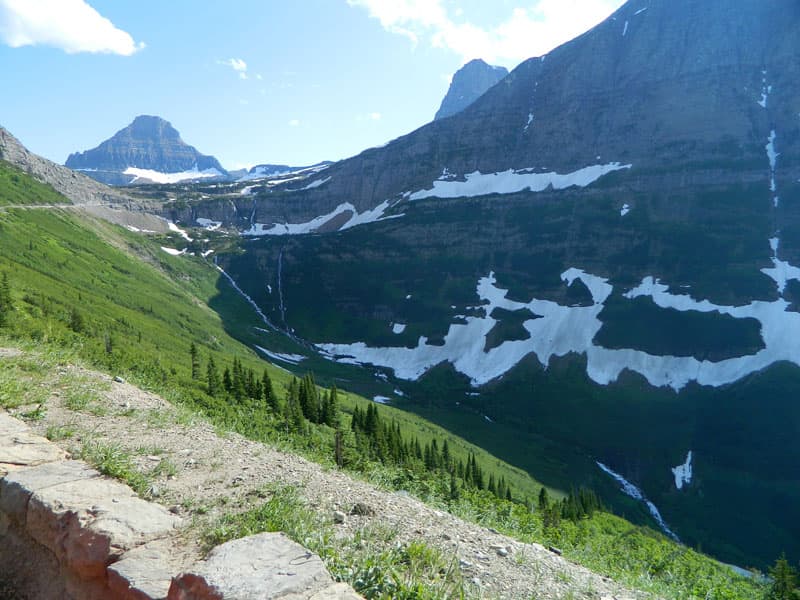
We live four hours from Glacier National Park and try to get there at least once a year. The biggest thing truck campers need to be aware of are the vehicle size restrictions on Going to the Sun Road. You are limited to 8-feet wide by 21-feet long and 10-feet high.
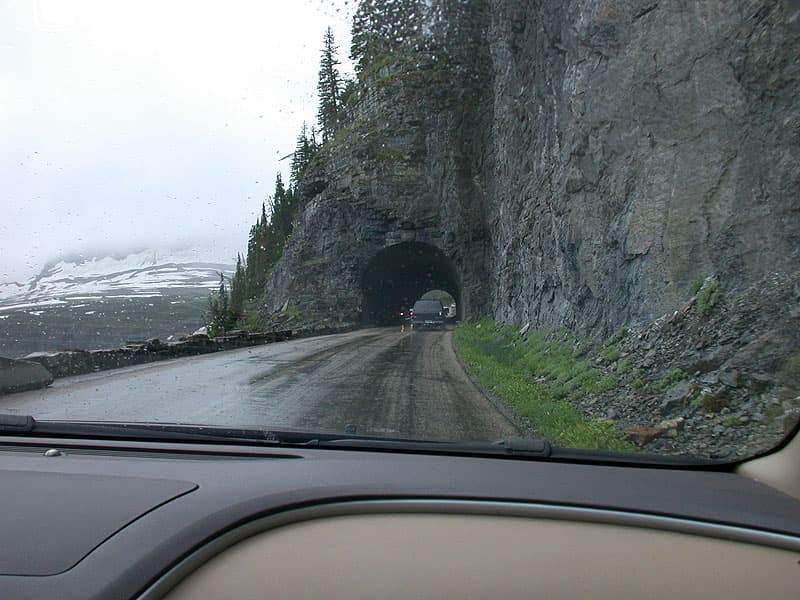
You may be able to fudge the length by a few inches, but being too tall can cause major damage to anything on the roof. Once you get past the Avalanche parking area there are very few places to turn a big rig around.
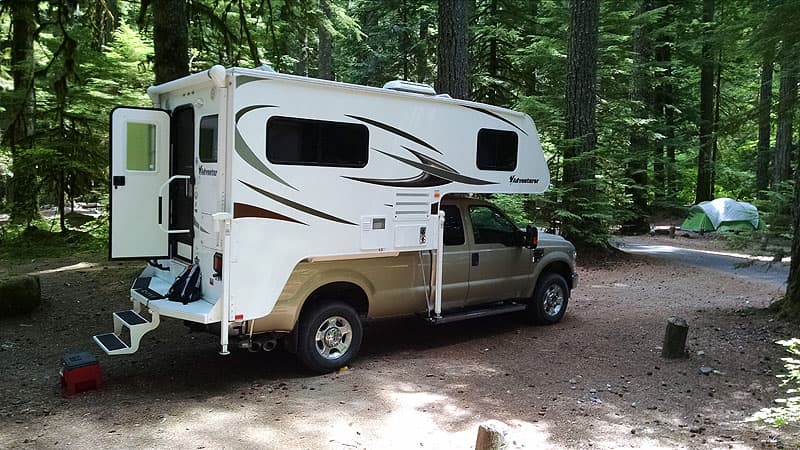
Our truck is a F350 Super Duty long bed. We have to unload the camper at the campground. Even then, I’m technically still a few inches over the 21-foot length limit.
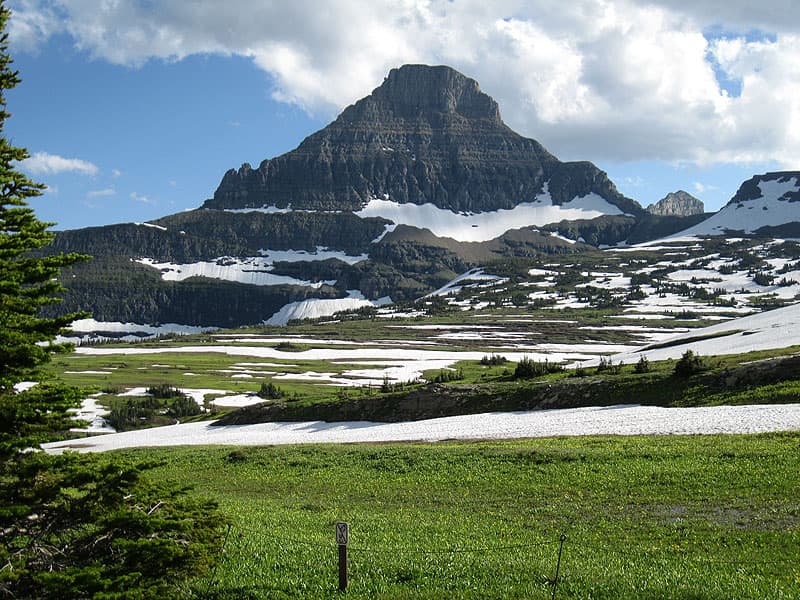
Above: Logan Pass
Depending on the weather and road construction, Going to the Sun Road is usually open from late June through September. If it’s closed, you have to take US-2 to get from the west side to the east side of the park.
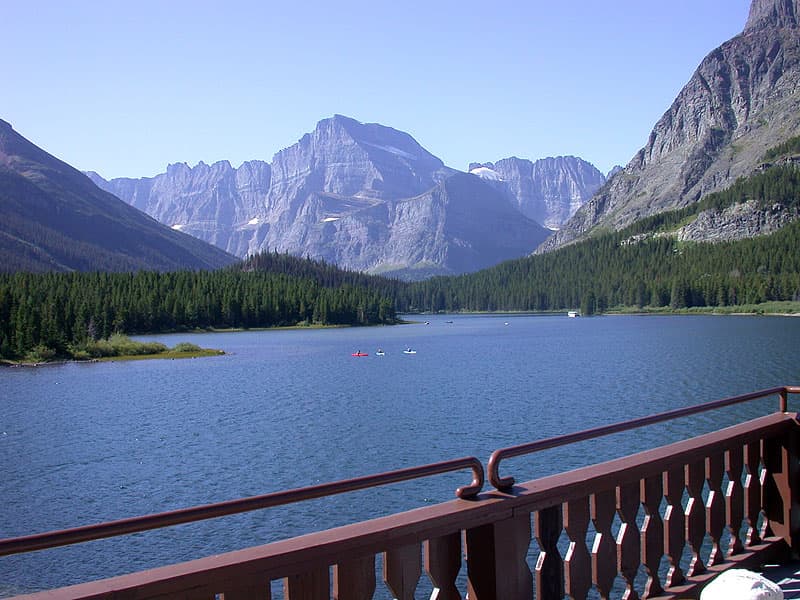
Above: Taken on the porch of Many Glacier Hotel looking out over Swiftcurrent Lake
If we’re camping, we usually stay at the Apgar Campground or at Bowman Lake on the west side.
Joe Sesto
2015 Silverado 3500
2015 Bigfoot 2500 10.6E
8. If You Can, Avoid Peak Tourist Season
The park was too crowded in late May. We just covered all the easy parts to get to, shot some unspectacular photos, and left at the end of the day.
We had hoped to go over the Logan Pass, but could not because there are ten foot overhangs and we are just under twelve feet. Plan ahead to get the most out of Glacier.
Eckhart Franz
2006 Chevy 3500
2005 Adventurer 90FWS
Nearby Attraction: Watertown National Park in Alberta
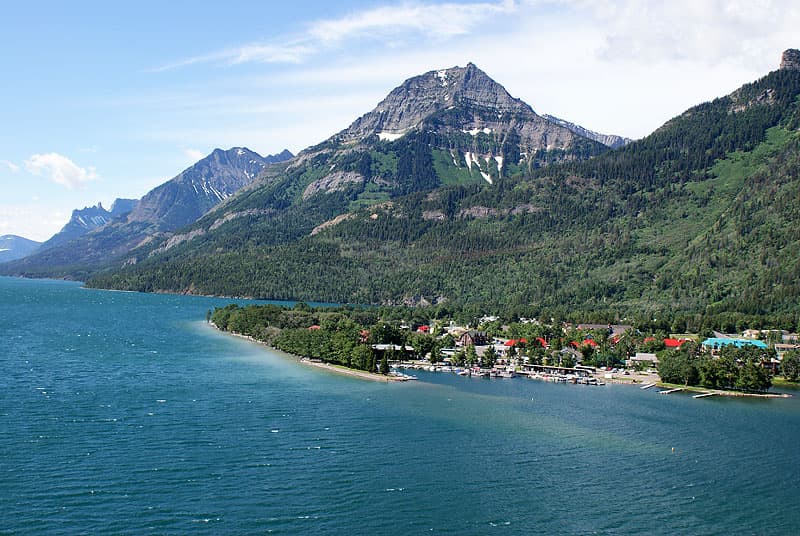
Above: A view of the community on the spit (in the photo above) from the Prince of Wales hotel. We did not canoe or kayak. There is a boat tour down the lake. You need to have you passport as the tour starts in Canada and the end of the lake is in the USA where they stop and allow you to depart for awhile.
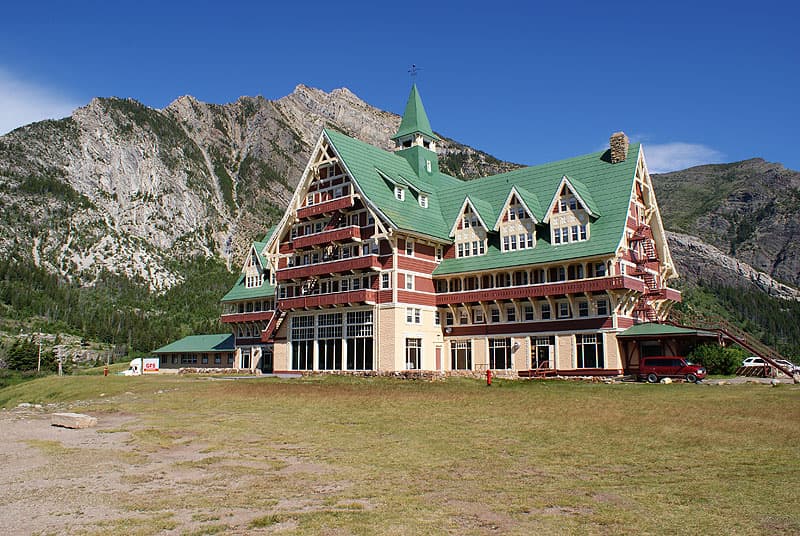
Above: Prince of Wales hotel in Waterton. It’s a historic building and an example of the luxury provided for travelers in the late 19th century, early 20th century.
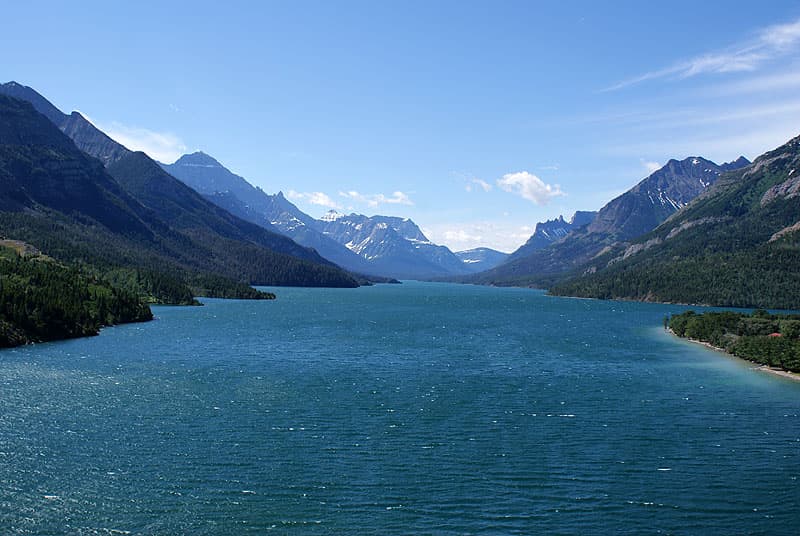
Above: Another view from the Prince of Wales hotel
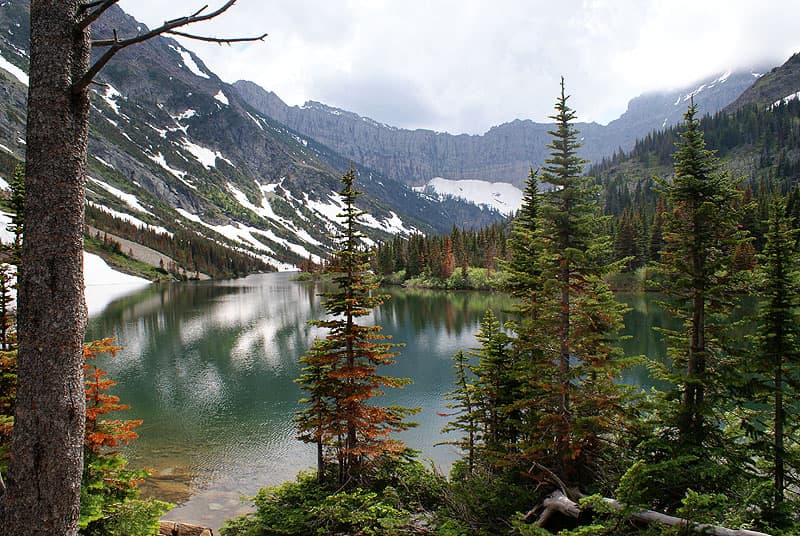
Above: Bertha Lake in Waterton is a relatively short hike up the mountain from the campground. It was about two hours with great views of the valley along the way. The trail is fairly step and we did encounter snow on the trail in a few places in early July.
If you are headed south from Waterton Lakes, Alberta, and your camper is over 10-feet high, you will need to drive around to the East entrance via Highway 89 and Highway 2. Or, you can stay at St, Mary as the Going to the Sun road has a height restriction of 10-feet.
There is also a length restriction of 21-feet and a width restriction of 8-feet. The road is well worth the drive and there are private shuttles and a free park shuttle to the summit. We went in early July and the road had only been open for three days. You need to check the status of the road if you try to go to early in the year. While we were in Canada’s Waterton National Park, the Going to the Sun road was still closed.
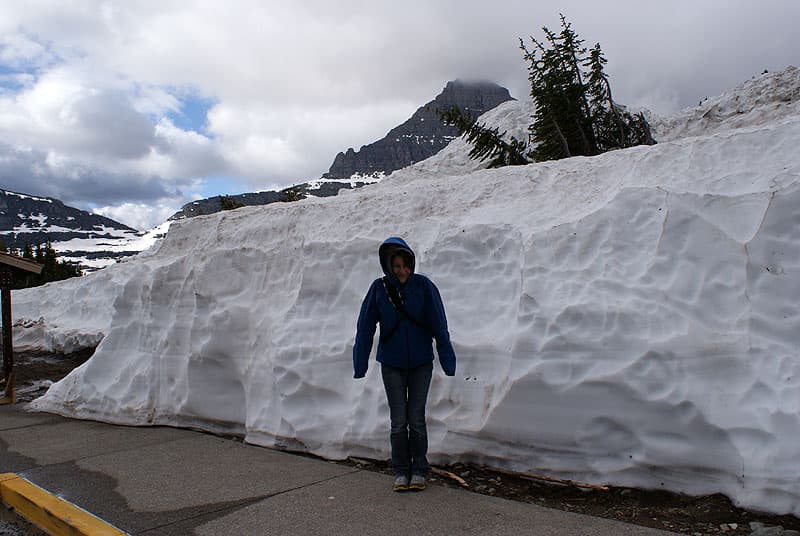
Above: Tara standing outside the path to the visitor center on Going to the Sun Road. It was July and we were cold!
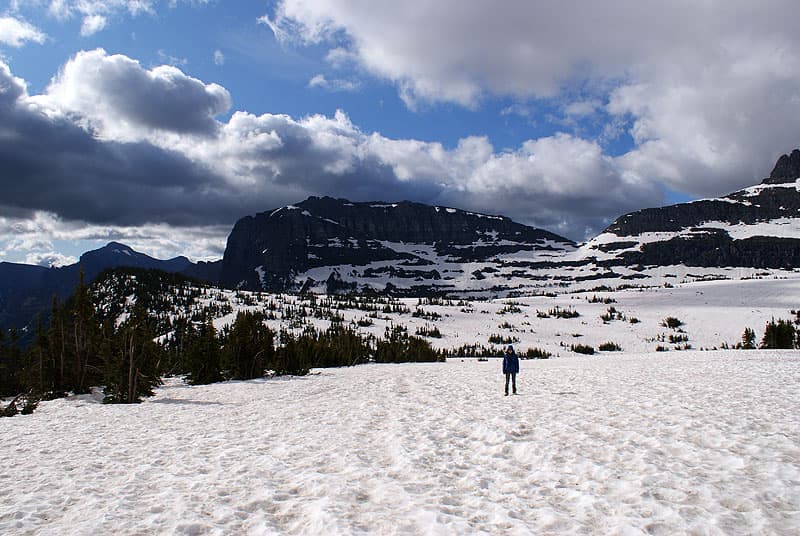
Above: Outside the visitor center on the Going to the Sun road. The road was open three days prior. The road needs to be plowed each year, so they wait until it is manageable. The year we went, the road was not plowed until early July.
In Glacier National Park we stayed in Avalanche creek campground, the last one prior to the Going to the Sun road. It does not take reservations and is more primitive. We were able to drop our camper and drive the road west to St. Mary and then come back again.
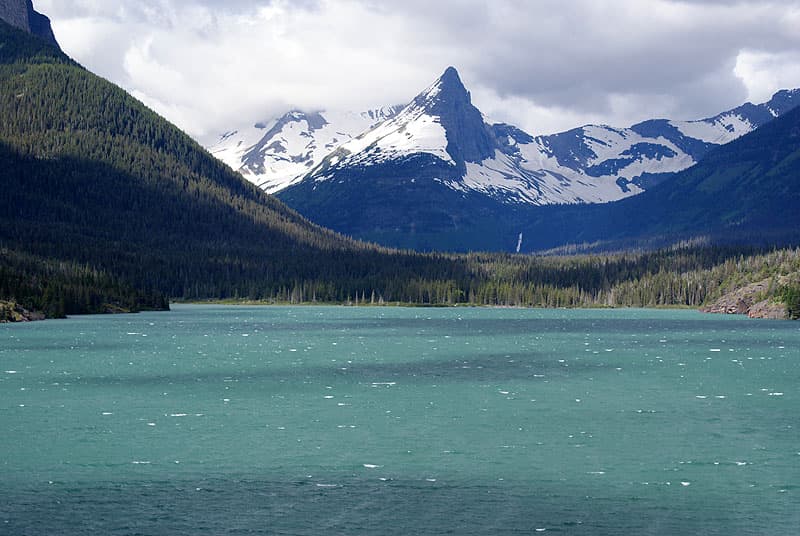
Above: View of one of the mountains in Glacier National Park from Lake McDonald
The town of Kalispell, Montana, southwest of Glacier, is also an interesting town to spend an afternoon wondering around.
Binoculars are a must for watching the sheep on the mountains. You need to also take warm clothing as there may be snow. If you are going to do one of the many backcountry hikes, then you should have the proper gear.
Dave and Carolyn Thalman
2013 Dodge Ram 2500
2013 Northstar 850SC
9. Polebridge Mercantile Has The Best Cinnamon Rolls
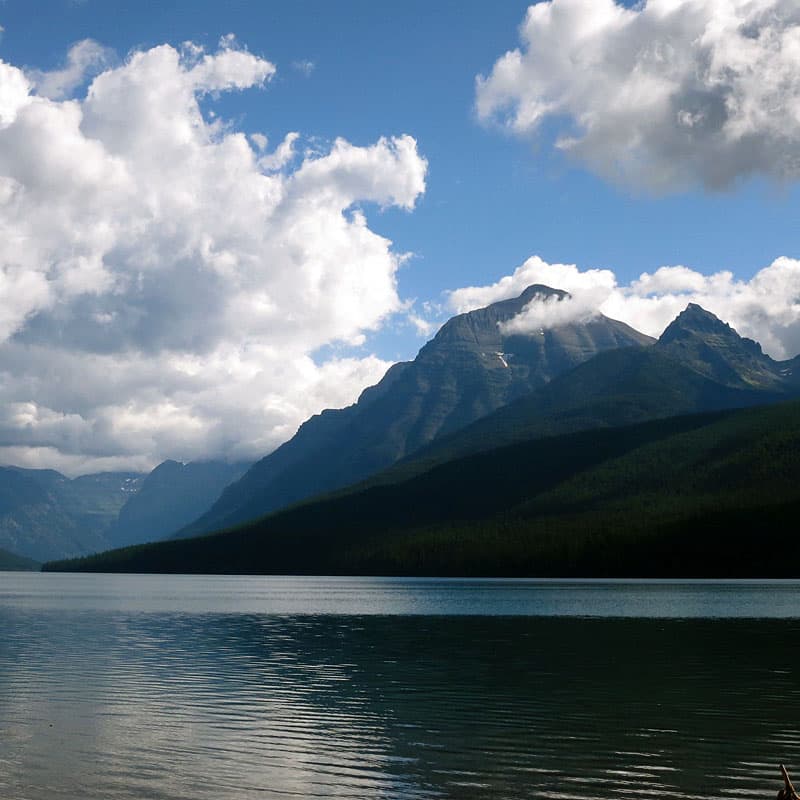
The road to Bowman Lake is a narrow, bumpy, gravel road, which is perfect for a truck camper and perfect for keeping the campground uncrowded!
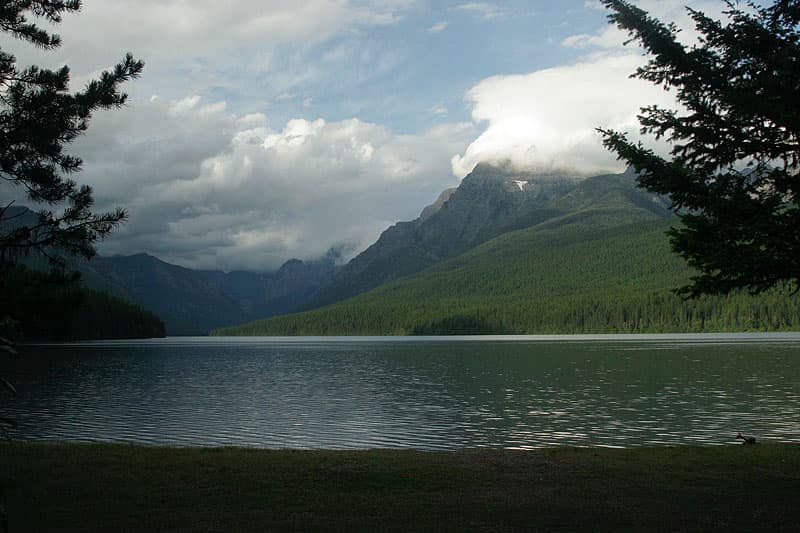
It is a remote lake on the west side of the park.
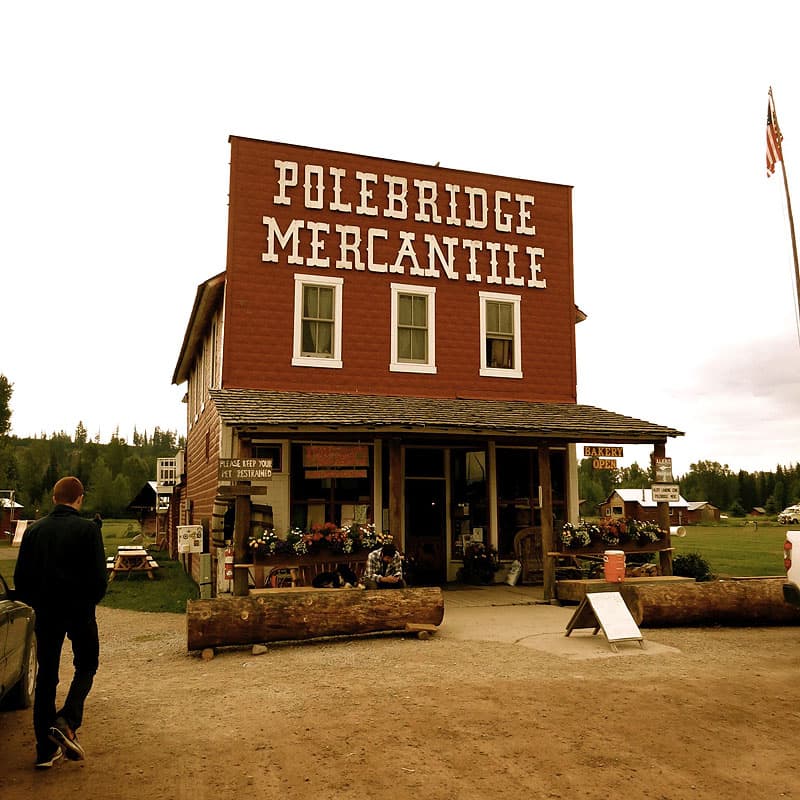
Do not miss a stop at the Polebridge Mercantile for the best cinnamon rolls. Really, we’ve had lots of the best cinnamon rolls on our travels, but these really are the best. Well, second best – my wife Carolyn makes the best.
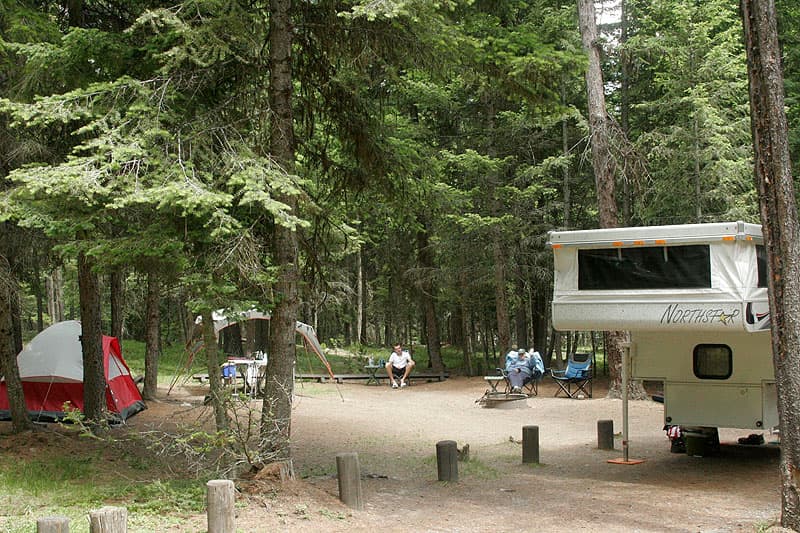
We camped at Bowman Lake for five days in a large fairly private spot. There are several good hikes in the area. It’s a great lake for paddling, but mostly it was a place of quiet and rest.
Philip Tron
2009 Chevy 3500
2012 Lance 1050
First, the mountains of Glacier National Park make for big differences in the weather between the east and west sides of the park. The east side is dry prairie, the western edge is a temperate rain forest. In the West Glacier Campground, the trees are hung with old man’s beard, which looks like Spanish moss. It rains a lot there.
10. Mountain Huckleberry Treats
Our favorite attraction is the mountain huckleberry treats that can be found after late July and into early August. Huckleberries and huckleberry flavored ice cream can be found at Hungry Horse Berry shop along Highway 2 near the west park entrance. You’ll never be satisfied with blueberry pie again.
See the park lodges, take the tour up the going to the sun road, visit the Jesuit mission church south of Polson, and buy tree-ripened cherries in Polson. The cherries are raised in commercial quantities around Polson and they have a cherry festival every summer.
The commercial campground at Polson used to be liberal about their definition of a camper. I saw a cabin boat from Texas used as an RV at night, and as a fishing boat on Flathead Lake during the day.
Lake Mary Ronan State Park is wonderful. We stayed at West Glacier campground until we got damp, and then stayed at the Polson KOA.
11. Bear Spray Is A Must
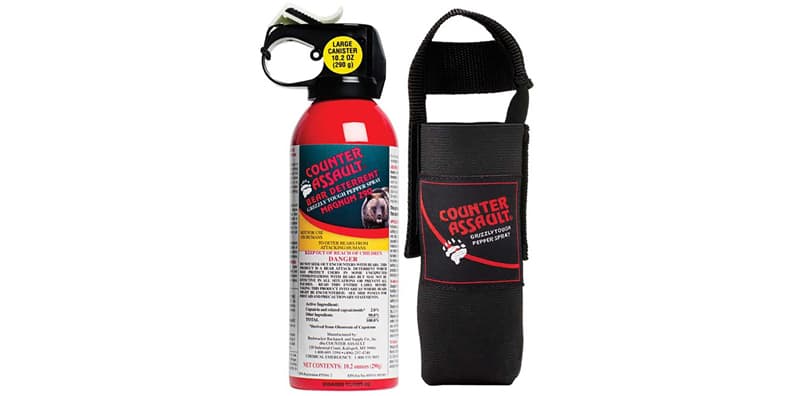
Take bear spray if you hike anywhere in Glacier National Park. On a trip to Glacier years ago, a couple from Indiana got mauled by a mother black bear. The husband learned it isn’t smart to beat a bear on the head because it bit his wife. Play dead if you encounter a grizzly, but not with a black bear.
There are limits to vehicle size on the Going to the Sun highway. My 22-foot long pickup is too long, and my camper is too high. But, the red bus tours up that road are fun.
Sue and Don Graf
2008 Ford F350
2013 Arctic Fox 865
12. Hike the Siyeh Pass Trail
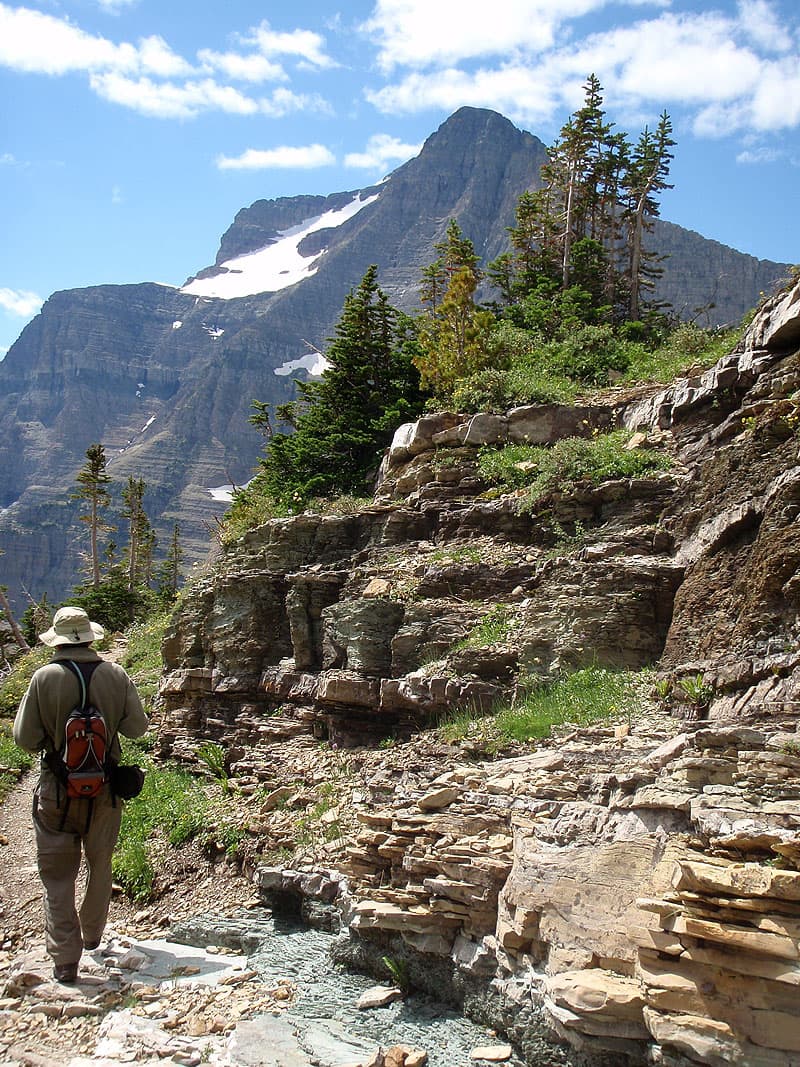
Above: Siyeh Pass Trail
Glacier is our favorite national park. The hiking is out of this world. On our last visit we hiked the Siyeh Pass Trail. Using the shuttle bus system we were picked up at the Rising Sun Campground and exited at Siyeh Bend on the Going to the Sun Road.
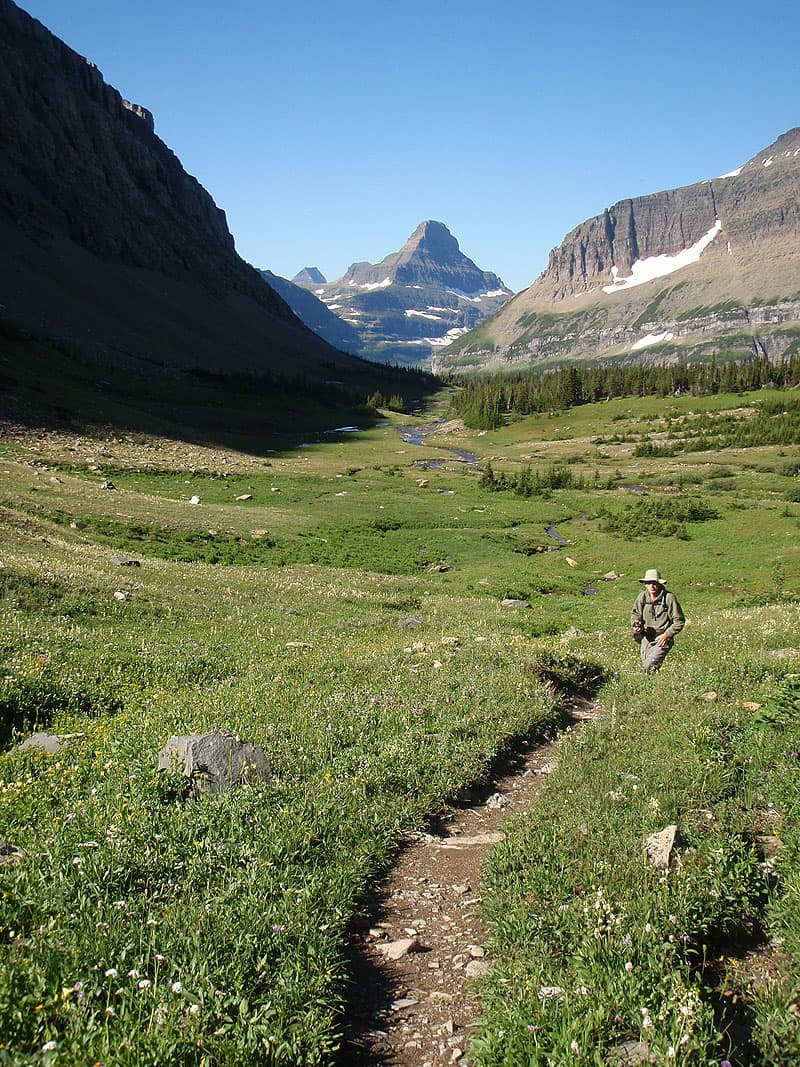
Above: Siyeh Pass Trail
The trail climbs and climbs and, just when you think you’ve made the high point at the pass, it turns and climbs even higher to 8,240 feet. Sexton Glacier is off to the side as you start down.
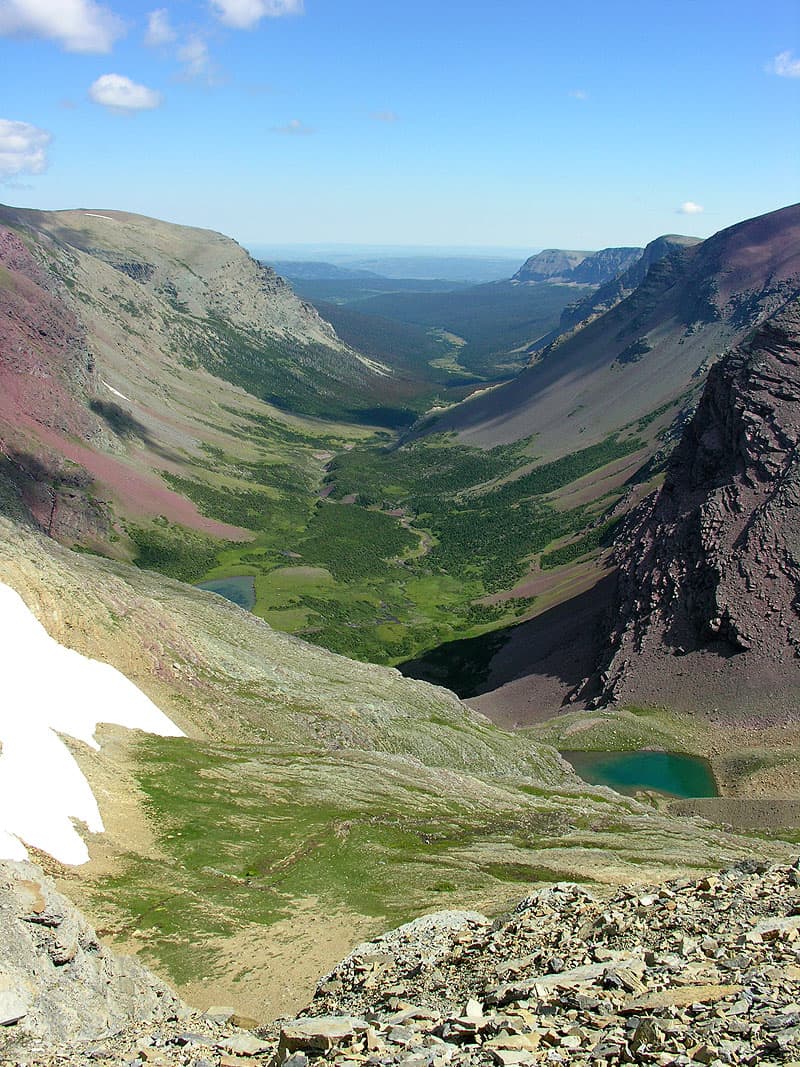
The trail twists and turns on the decent through Sunrift Gorge. There are 360 degree views for most of the trail. Wildlife and wildflowers are abundant in the meadows. Streams and ponds are there as well.
13. Take the International Peace Hike with a Ranger
The ranger led the International Peace Hike that starts at Waterton National Park in Canada, goes through customs, and returns into Glacier before taking a boat trip back to Canada.
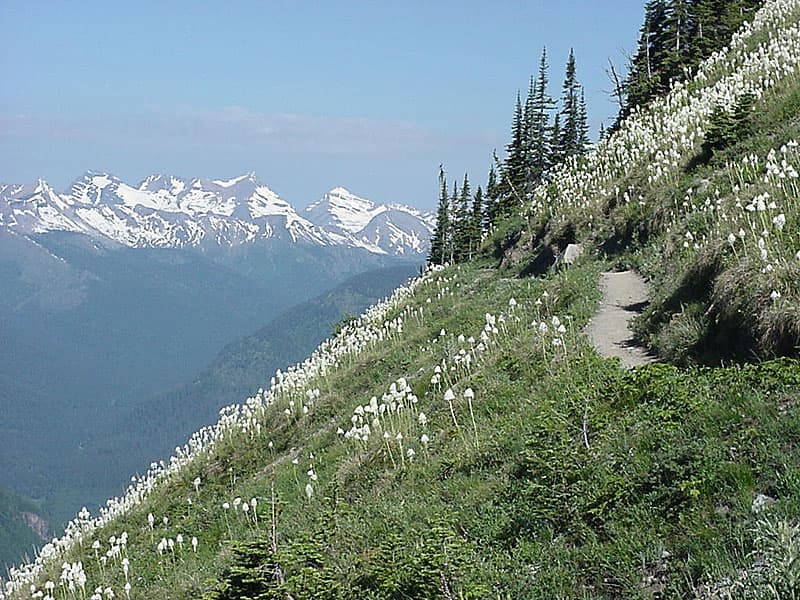
Above: Highline Trail from Logan Pass
Even if you are afraid of heights, and ledges, try to walk at least a little ways out on the Highline Trail from Logan Pass.
We stayed at Rising Sun Campground, which is a great place for truck campers since it has a maximum length of 25 feet. One of the campground loops does not allow generators and it’s a first come, first serve campground, so get there early. A store, restaurant, and shuttle stop are adjacent to the campground.
Recommended Reading
We carry a great hiking guide called the Waterton-Glacier International Peace Park by Vixky Spring. We also bring along the book called Plants of Waterton-Glacier National Parks by Danny J. Shaw and Danny On. The wildflowers are so wonderful, and you’ll want to know what they are.
The trails are rugged and you definitely want hiking boots, not sneakers or sandals. Don’t go without a camera. You’ll want to take pictures of everything!







